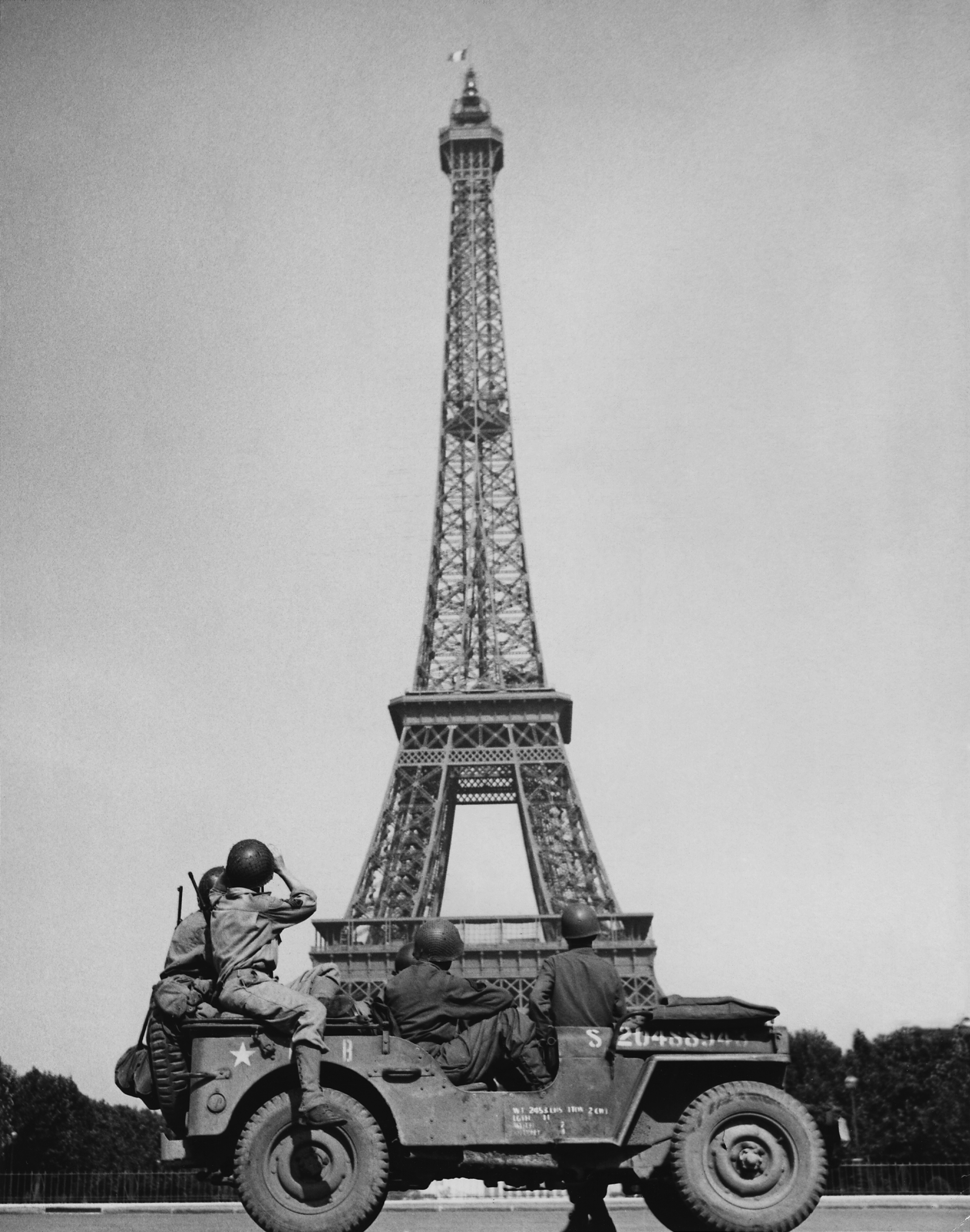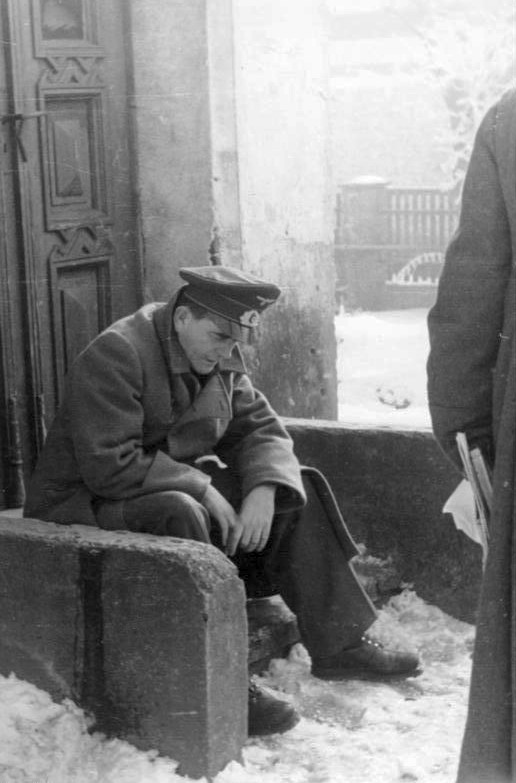Nero Decree on:
[Wikipedia]
[Google]
[Amazon]
The Nero Decree (german: Nerobefehl) was issued by
 This was not the first time Hitler had tried to destroy infrastructure before it could be taken. Shortly before the
This was not the first time Hitler had tried to destroy infrastructure before it could be taken. Shortly before the
 Its most pertinent section reads as follows:
Its most pertinent section reads as follows:
Adolf Hitler
Adolf Hitler (; 20 April 188930 April 1945) was an Austrian-born German politician who was dictator of Nazi Germany, Germany from 1933 until Death of Adolf Hitler, his death in 1945. Adolf Hitler's rise to power, He rose to power as the le ...
on 19 March 1945, ordering the destruction of German infrastructure to prevent its use by Allied
An alliance is a relationship among people, groups, or states that have joined together for mutual benefit or to achieve some common purpose, whether or not explicit agreement has been worked out among them. Members of an alliance are called ...
forces as they penetrated deep within Germany
Germany,, officially the Federal Republic of Germany, is a country in Central Europe. It is the second most populous country in Europe after Russia, and the most populous member state of the European Union. Germany is situated betwe ...
. It was officially titled Decree Concerning Demolitions in the Reich Territory () and has subsequently become known as the Nero Decree, after the Roman Emperor Nero
Nero Claudius Caesar Augustus Germanicus ( ; born Lucius Domitius Ahenobarbus; 15 December AD 37 – 9 June AD 68), was the fifth Roman emperor and final emperor of the Julio-Claudian dynasty, reigning from AD 54 un ...
, who, according to an apocryphal story, engineered the Great Fire of Rome
The Great Fire of Rome ( la, incendium magnum Romae) occurred in July AD 64. The fire began in the merchant shops around Rome's chariot stadium, Circus Maximus, on the night of 19 July. After six days, the fire was brought under control, but before ...
in 64 AD. The decree was deliberately disobeyed by Albert Speer
Berthold Konrad Hermann Albert Speer (; ; 19 March 1905 – 1 September 1981) was a German architect who served as the Minister of Armaments and War Production in Nazi Germany during most of World War II. A close ally of Adolf Hitler, he ...
.
Background
By the beginning of 1945, the German situation was desperate. Most of the conquered territories had been liberated or recaptured, theArdennes Offensive
The Battle of the Bulge, also known as the Ardennes Offensive, was the last major German offensive campaign on the Western Front during World War II. The battle lasted from 16 December 1944 to 28 January 1945, towards the end of the war in ...
had failed, and Allied armies were advancing on Germany proper from both the East
East or Orient is one of the four cardinal directions or points of the compass. It is the opposite direction from west and is the direction from which the Sun rises on the Earth.
Etymology
As in other languages, the word is formed from the fa ...
and the West
West or Occident is one of the four cardinal directions or points of the compass. It is the opposite direction from east and is the direction in which the Sunset, Sun sets on the Earth.
Etymology
The word "west" is a Germanic languages, German ...
. However, Hitler was not willing to accept the terms of unconditional surrender
An unconditional surrender is a surrender in which no guarantees are given to the surrendering party. It is often demanded with the threat of complete destruction, extermination or annihilation.
In modern times, unconditional surrenders most ofte ...
, and considered this as repeating the same shame as Versailles
The Palace of Versailles ( ; french: Château de Versailles ) is a former royal residence built by King Louis XIV located in Versailles, about west of Paris, France. The palace is owned by the French Republic and since 1995 has been managed, u ...
. Moreover, according to some around him, Hitler came to view the German people as having failed him, unworthy of their great mission in history and thus deserving to die alongside his regime.
 This was not the first time Hitler had tried to destroy infrastructure before it could be taken. Shortly before the
This was not the first time Hitler had tried to destroy infrastructure before it could be taken. Shortly before the Liberation of Paris
The liberation of Paris (french: Libération de Paris) was a military battle that took place during World War II from 19 August 1944 until the German garrison surrendered the French capital on 25 August 1944. Paris had been occupied by Nazi Germ ...
, Hitler ordered explosives to be placed around important landmarks, such as the Eiffel Tower
The Eiffel Tower ( ; french: links=yes, tour Eiffel ) is a wrought-iron lattice tower on the Champ de Mars in Paris, France. It is named after the engineer Gustave Eiffel, whose company designed and built the tower.
Locally nicknamed "'' ...
, and key transportation hubs. If the Allies came near the city, the military governor, General Dietrich von Choltitz
Dietrich Hugo Hermann von Choltitz (; 9 November 1894 – 5 November 1966) was a German general. Sometimes referred to as the Saviour of Paris, he served in the Wehrmacht (armed forces) of Nazi Germany during World War II, as well as serving in ...
was to detonate these bombs, leaving Paris "lying in complete debris". Von Choltitz, however, did not carry out the order and surrendered to the Allies, later alleging that this was the moment he realized that "Hitler was insane". Similarly, Hitler had issued orders to enact a scorched earth
A scorched-earth policy is a military strategy that aims to destroy anything that might be useful to the enemy. Any assets that could be used by the enemy may be targeted, which usually includes obvious weapons, transport vehicles, communi ...
policy upon the Netherlands in late 1944, when it became obvious that the Allies were about to retake the country, but Arthur Seyss-Inquart
Arthur Seyss-Inquart (German: Seyß-Inquart, ; 22 July 1892 16 October 1946) was an Austrian Austrian National Socialism, Nazi politician who served as Chancellor of Austria in 1938 for two days before the ''Anschluss''. His positions in Nazi Ge ...
, the ''Reichskommissar'' in charge of the Netherlands during its occupation, was able to greatly limit the scope to which the order was executed.
The Decree
 Its most pertinent section reads as follows:
Its most pertinent section reads as follows:
It is a mistake to think that transport and communication facilities, industrial establishments and supply depots, which have not been destroyed, or have only been temporarily put out of action, can be used again for our own ends when the lost territory has been recovered. The enemy will leave us nothing butscorched earth A scorched-earth policy is a military strategy that aims to destroy anything that might be useful to the enemy. Any assets that could be used by the enemy may be targeted, which usually includes obvious weapons, transport vehicles, communi ...when he withdraws, without paying the slightest regard to the population. I therefore order: 1) All military transport and communication facilities, industrial establishments and supply depots, as well as anything else of value within Reich territory, which could in any way be used by the enemy immediately or within the foreseeable future for the prosecution of the war, will be destroyed. Hugh R. Trevor Roper (ed). ''Blitzkrieg to Defeat: Hitler's War Directives 1939–1945'' (NY: Holt Rinehart and Winston, 1971) pp. 206–207
Actions
The decree was in vain. The responsibility for carrying it out fell toAlbert Speer
Berthold Konrad Hermann Albert Speer (; ; 19 March 1905 – 1 September 1981) was a German architect who served as the Minister of Armaments and War Production in Nazi Germany during most of World War II. A close ally of Adolf Hitler, he ...
, Hitler's Minister of Armaments and War Production. According to him, Speer was appalled by the order and lost faith in the dictator. Just as von Choltitz had several months earlier, Speer deliberately failed to carry out the order. Upon receiving it, he requested to be given exclusive power to implement the plan, instead using his power to convince the generals and ''Gauleiters'' to ignore the order. Hitler remained unaware of this until the very end of the war, when Speer, while visiting Hitler on 22 April in his Berlin bunker for the last time, admitted to him that he deliberately disobeyed.Hamsher (Wiliam), Albert Speer / Victim of Nuremberg ?, Londres, Frewin, 1970; Schmidt (Matthias), Albert Speer / Das Ende eines Mythos, Munich, Scherz, 1982 Hitler was angry with his minister, but allowed Speer to leave nonetheless. Hitler committed suicide on 30 April 1945, forty-two days after issuing the order. Shortly afterwards, on 7 May 1945, General Alfred Jodl
Alfred Josef Ferdinand Jodl (; 10 May 1890 – 16 October 1946) was a German ''Generaloberst'' who served as the chief of the Operations Staff of the '' Oberkommando der Wehrmacht'' – the German Armed Forces High Command – throughout World ...
signed the German military surrender, and on 23 May Speer was arrested on the orders of U.S. General Dwight D. Eisenhower
Dwight David "Ike" Eisenhower (born David Dwight Eisenhower; ; October 14, 1890 – March 28, 1969) was an American military officer and statesman who served as the 34th president of the United States from 1953 to 1961. During World War II, ...
, together with the rest of the provisional German government led by Admiral Karl Dönitz
Karl Dönitz (sometimes spelled Doenitz; ; 16 September 1891 24 December 1980) was a German admiral who briefly succeeded Adolf Hitler as head of state in May 1945, holding the position until the dissolution of the Flensburg Government follo ...
, Hitler's successor as head of state.
See also
*Albert Speer
Berthold Konrad Hermann Albert Speer (; ; 19 March 1905 – 1 September 1981) was a German architect who served as the Minister of Armaments and War Production in Nazi Germany during most of World War II. A close ally of Adolf Hitler, he ...
* Gotthard Heinrici
Gotthard Fedor August Heinrici (25 December 1886 – 10 December 1971) was a German general during World War II. Heinrici is considered as the premier defensive expert of the ''Wehrmacht''. His final command was Army Group Vistula, formed from t ...
* Hellmuth Reymann
Hellmuth Reymann (24 November 1892 – 8 December 1988) was an officer in the German Army ('' Heer'') during World War II. He was one of the last commanders of the Berlin Defence Area during the final assault by Soviet forces on Berlin.
World Wa ...
* '' Is Paris Burning?''
* Morgenthau Plan
The Morgenthau Plan was a proposal to eliminate Germany following World War II and eliminating its arms industry and removing or destroying other key industries basic to military strength. This included the removal or destruction of all industri ...
* Destruction of Warsaw
* Railroad plough
A railroad plough is a rail vehicle which supports an immensely strong, hook-shaped plough. It is used for destruction of sleepers in warfare, as part of a scorched earth policy, so that the track becomes unusable for the enemy.
In use, the ploug ...
* Scorched earth
A scorched-earth policy is a military strategy that aims to destroy anything that might be useful to the enemy. Any assets that could be used by the enemy may be targeted, which usually includes obvious weapons, transport vehicles, communi ...
Notes
{{reflist Nero Orders by Adolf Hitler 1945 in Germany Decrees March 1945 events 1945 documents Military plans